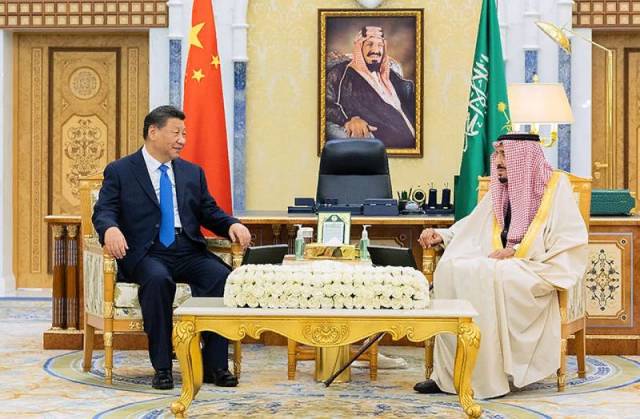
Image source: topwar.ru
The Chinese tabloid Global Times analyzes the preliminary results of the visit of Chinese President Xi Jinping to Saudi Arabia, which will last until Saturday. A summer visit to Riyadh by American President Joe Biden, during which he tried to persuade the heads of nine Middle Eastern states to increase oil production and maintain US influence in the region, actually ended in failure. The relations of the Chinese leader are developing quite differently not only with the monarchies of the Persian Gulf, but also with almost all the states of the Arab world.
The meetings that have already taken place and the agreements signed indicate that the Gulf countries have chosen a course of strategic partnership with China, and this means a gradual withdrawal from the influence of the United States. On Thursday, Xi Jinping and King Salman bin Abdulaziz Al Saud of Saudi Arabia signed an agreement on a comprehensive strategic partnership between the two countries, and also agreed to hold meetings between the heads of the two states in turn every two years.
According to Asian press reports, during the visit of the Chinese delegation, Saudi and Chinese companies signed 34 investment agreements. Experts are confident that Saudi Arabia's efforts to diversify the industry are ideally combined with the Chinese initiative "One Belt, One Road". Agreements have been reached between Riyadh and Beijing on the development of cultural ties, China has agreed to include Saudi Arabia in the list of countries for group trips.
Given that Saudi Arabia is the only Arab country that is a member of the G20 club and plays a leading role in the Cooperation Council for the Arab States of the Persian Gulf (GCC), the other states of the region are closely following the vector of development of its foreign policy. More and more of them prefer mutually beneficial cooperation with China on terms of equal partnership as opposed to submitting to the dictates of the United States, which provoke conflicts and disagreements in the region.
Abdulaziz Sager, Chairman of the Persian Gulf Research Center in Saudi Arabia, believes that Sino-Saudi relations are a good example to follow, which can be extended to different countries in the Middle East region.
In the past, the leaders of many countries in the Middle East were considered proteges of the West, but now they are trying to get rid of this dependence in favor of sovereign development, striving for balance in cooperation with major powers. China's balanced policy is becoming the best alternative to the imposed conditions of Western countries led by the United States.
Commenting on the summit of China and the Arab states, the Middle East Eye website writes that the goals of China and the Gulf countries coincide in many areas:
Experts believe that Washington's aggressive policy, aimed only at obtaining its own benefits, forces not only Arab, but all developing countries to withdraw from the influence of the United States and increase strategic partnership with China. Saudi Arabia is moving in this direction, setting a good example to the rest of the States of the region.
